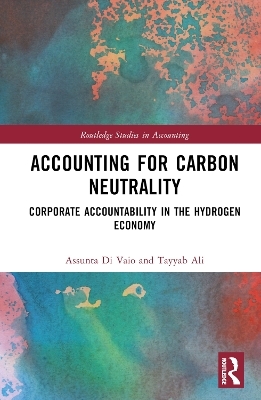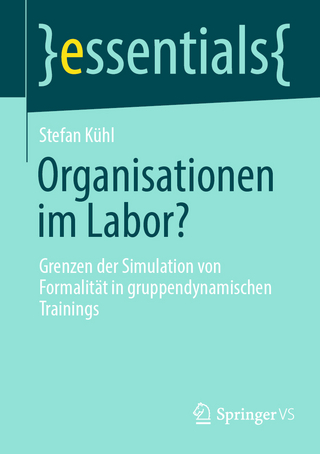
Accounting for Carbon Neutrality
Routledge (Verlag)
978-1-032-86308-5 (ISBN)
- Noch nicht erschienen (ca. März 2025)
- Versandkostenfrei innerhalb Deutschlands
- Auch auf Rechnung
- Verfügbarkeit in der Filiale vor Ort prüfen
- Artikel merken
Despite the progress made so far, the links between environmental, social and governance (ESG) sustainability pillars remain underexplored, particularly in the context of firms investing in hydrogen for decarbonization. In essence, hydrogen is a lynchpin connecting engineering ingenuity, economic viability, and strategic business decisions. Its multifaceted role underscores its significance in addressing contemporary challenges, driving innovation, and shaping a sustainable future through the accounting system.
This book unravels the complexities of carbon control practices, offering insights into financial, operational, and sustainable dimensions. From the challenges of sustainability transitions, green technology adoption, use of renewable resources, reporting and disclosure of decarbonization practices posed by carbon emissions to the responsibilities of businesses actions in achieving zero-carbon goals, the book explores the critical role of accounting tools and international regulatory frameworks such as the United Nations (UN) 2030 Agenda, the European Union Green Deal, and Paris Agreement as organizational collective responsibility in shaping a sustainable future for people, planet, prosperity, peace, and partnership.
The book draws from stakeholder, institutional, legitimacy, resource dependency, agency, stewardship theories, bridging the gaps in fragmented academic research, and offers an innovative interpretative key to the phenomenon of decarbonization in the hydrogen economy. The book’s qualitative methodological approach offers a unified vision from strategies to actions, guiding companies toward their contribution to carbon neutrality goals in the hydrogen economy, and holding them accountable for their actions, behavior, and sustainability reporting.
Assunta Di Vaio is an Associate Professor of Business Administration, in the Department of Law, University of Naples Parthenope, Italy. Tayyab Ali is a PhD holder in the Department of Economics and Legal Studies, University of Naples Parthenope, Italy.
PART I: Introduction 1. Hydrogen and the hydrogen economy's relationship with stakeholders 2. Renewable energy sources and hydrogen for decarbonization practices 3. Digital technologies and hydrogen for decarbonization practices PART II: Theoretical and Normative Background 4. Theoretical framework for decarbonization practices and the hydrogen economy 5. Regulatory framework for decarbonization practices and the hydrogen economy 6. Accounting standards and guidance for a carbon free economy: Hydrogen step forward PART III: Challenges and Trends 7. Accounting in the hydrogen economy for carbon neutrality 8. Accountability for accounting in the hydrogen economy 9. Hydrogen case studies and future perspectives
| Erscheint lt. Verlag | 9.3.2025 |
|---|---|
| Reihe/Serie | Routledge Studies in Accounting |
| Verlagsort | London |
| Sprache | englisch |
| Maße | 156 x 234 mm |
| Themenwelt | Sozialwissenschaften ► Soziologie ► Spezielle Soziologien |
| Wirtschaft ► Betriebswirtschaft / Management ► Rechnungswesen / Bilanzen | |
| Wirtschaft ► Betriebswirtschaft / Management ► Unternehmensführung / Management | |
| ISBN-10 | 1-032-86308-0 / 1032863080 |
| ISBN-13 | 978-1-032-86308-5 / 9781032863085 |
| Zustand | Neuware |
| Haben Sie eine Frage zum Produkt? |
aus dem Bereich


